Smartphone docks have been around since well before the original iPhone launched in 2007, but Apple's handset helped turn the accessory category into one of the largest for third-party manufacturers. AppleInsider has been using the CordDock for a few weeks now, and it stands out from most we've tested before.
Common problems
Since the beginning, two issues plagued nearly every dock. First, when you lift up your phone the dock would come with it, requiring two hands or some awkward hand movements to pry it loose. Second, your phone disconnects from power when you lift it up.
The first problem has been solved a variety of ways over the years. ElevationLab had previously created a frictionless 30-pin dock for the iPhones of the time that would allow you to easily dock/undock one-handed.
The Lightning cable, which usurped the 30-pin, made a frictionless cable impossible. So manufacturers resorted to using sheer mass instead. Those like the ElevationDock 3 or the Grovemade dock were both largely crafted from metal. The weight made it easy to remove your phone without the dock being dislodged. To achieve a hefty enough weight, the size of these docks were rather large.
Micro-suction
ElevationLab bucked this trend of large docks with their previous ElevationDock 4. It traded in the sizable metal body for a much smaller plastic one with a special micro-suction foot. The micro-suction is a piece of foam that acts like thousands of tiny suction cups, creating a grip to whatever surface it is on. You can remove it at any time, and won't cause any damage to your furniture.
We've seen this micro-suction material in the past and it is something we've grown quite fond of. Some case manufacturers have even adopted it for their iPhone X folios.
Detachable cable
As a solution to the second headache, ElevationLab created a unique detachable cable. It has a 90 end that is able to firmly clip into the CordDock. Clearly, this is where the name comes from.
To detach the cable from the dock, you simply tilt your phone forward and lift. The cable will then come with the phone, allowing you to continue to charge.
In use, this means if you lift your phone straight up, it detaches from the cord, if you tilt forward, the cable will detach from the dock and stay connected to your phone. We love that it has these two methods for un-docking your phone.
Cases?
When it comes to docks, one of the first things we check, is its compatibility with a wide variety of cases. The CordDock shines in this aspect.
The back of the dock features two adjustable back plates that screw in/out to fit depending on the thickness of your case.
Under the phone, are two magnetic pads that you can swap for thinner ones that allow the cable to fit a case with a thicker bottom.
Conclusion
CordDock truly is more of a cord than a phone dock, and it is quite clever in its implementation.
Of all the great aspects of CordDock, the only thing we were really able to ding it on was the choice to construct it from more plastic than metal. We love the solid, clean, anodized look of Apple's docks, and would have liked to see a more premium build of the CordDock using aluminum instead. Of course, the difficult construction could make that more difficult (and expensive) to achieve.
Score: 4 out of 5
Where to buy
The CordDock, as well as ElevationLab's other excellent docks can be found on their website, or on Amazon. The CordDock, with the MFi approved Lightning cable included, will run you $42. A bit less than the wildly popular ElevationDock 4 which runs $59.95.
 Andrew O'Hara
Andrew O'Hara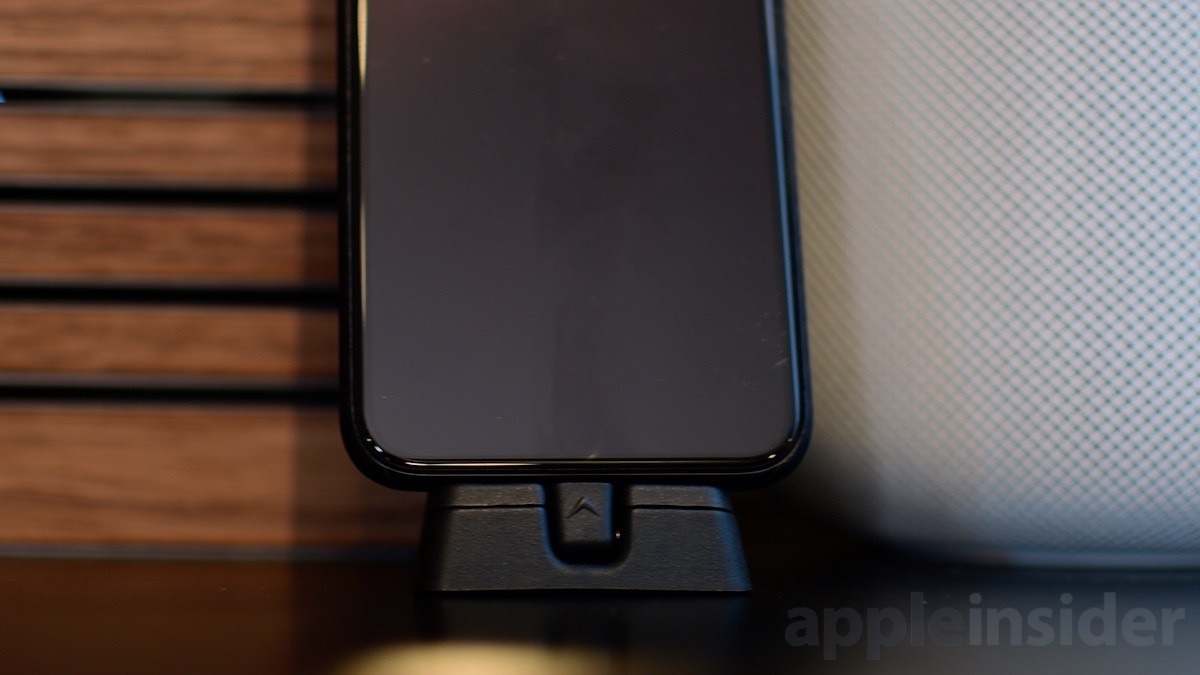
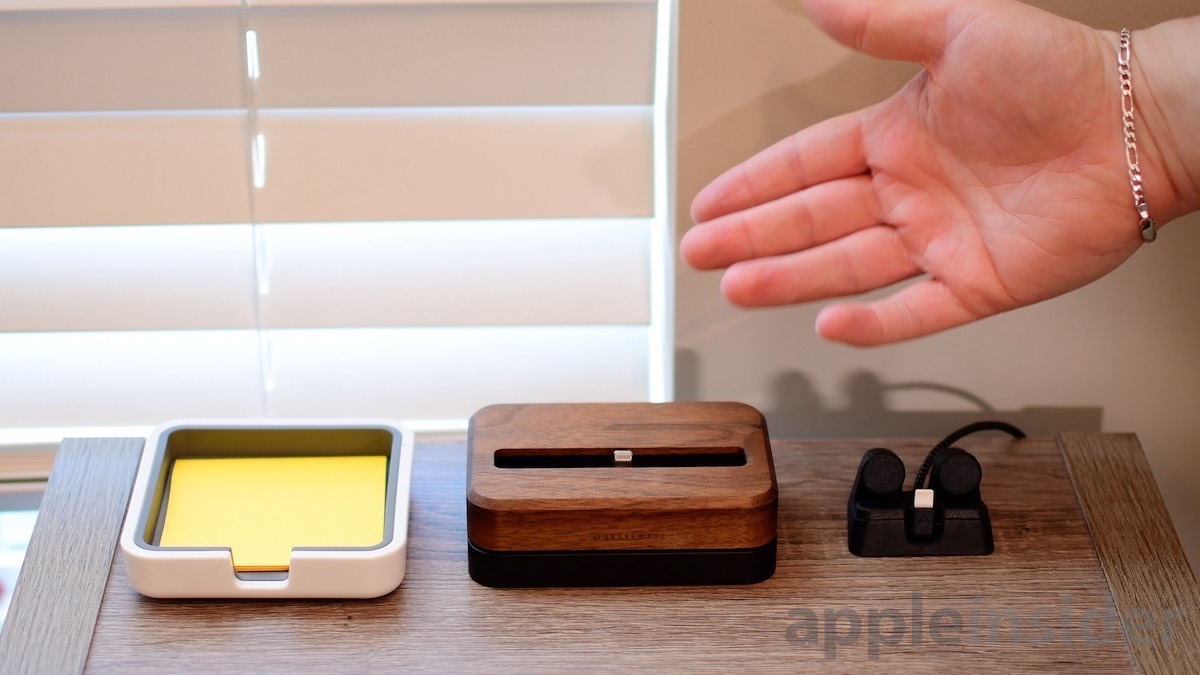
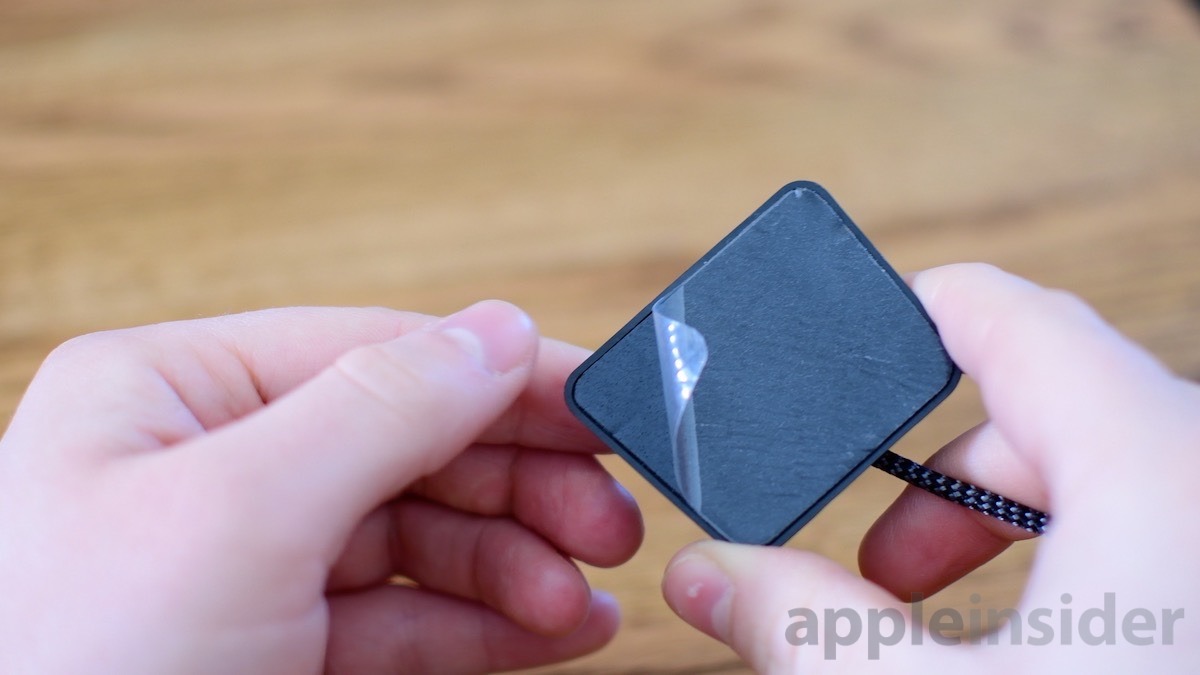
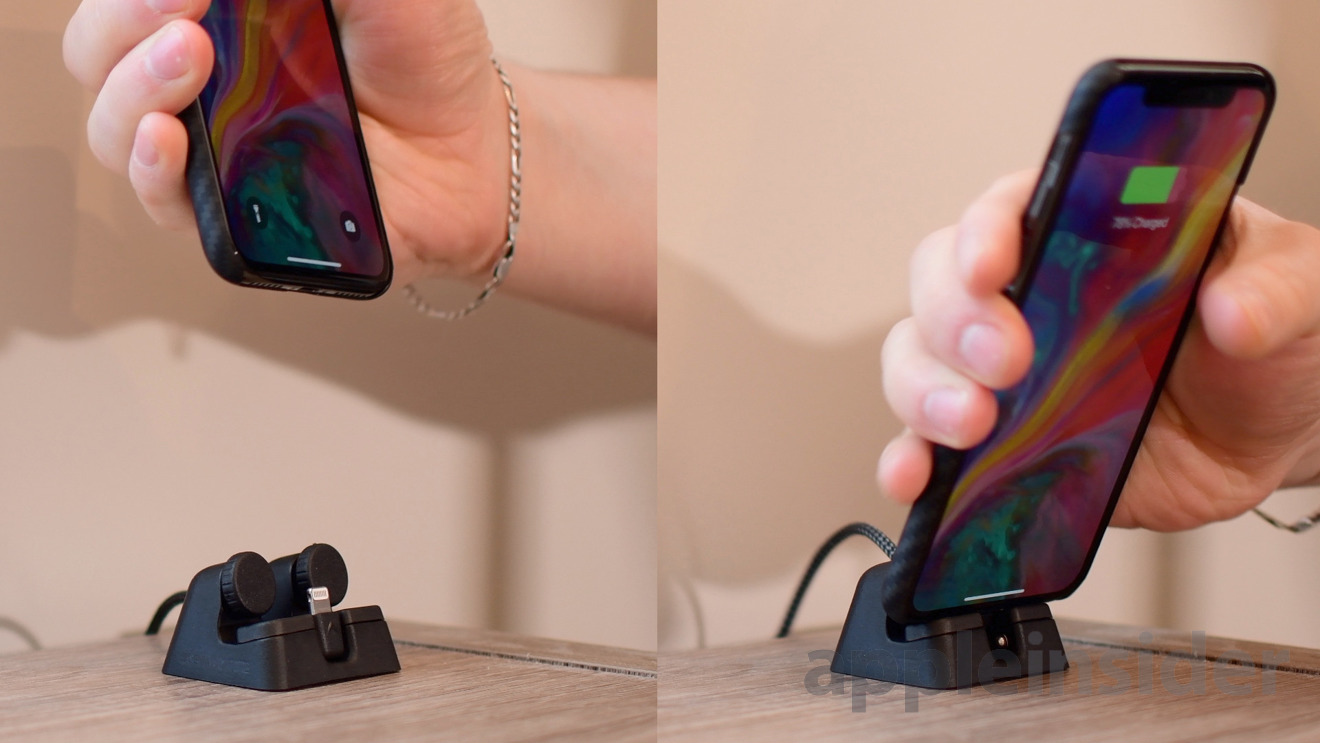
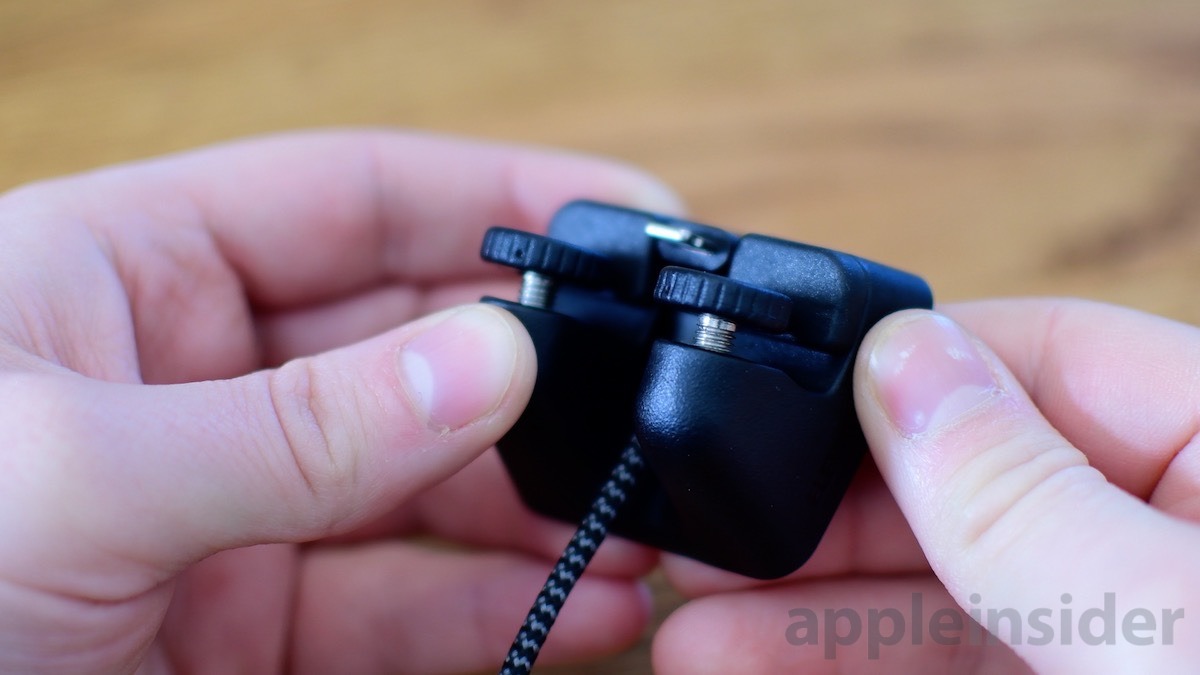
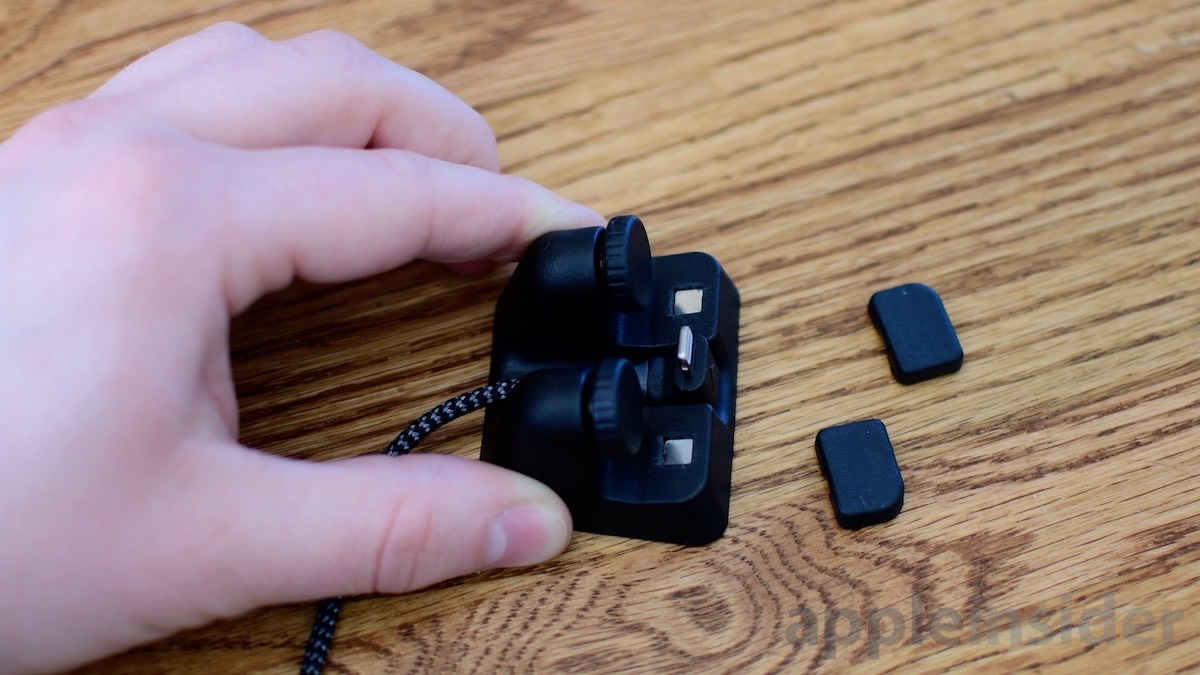
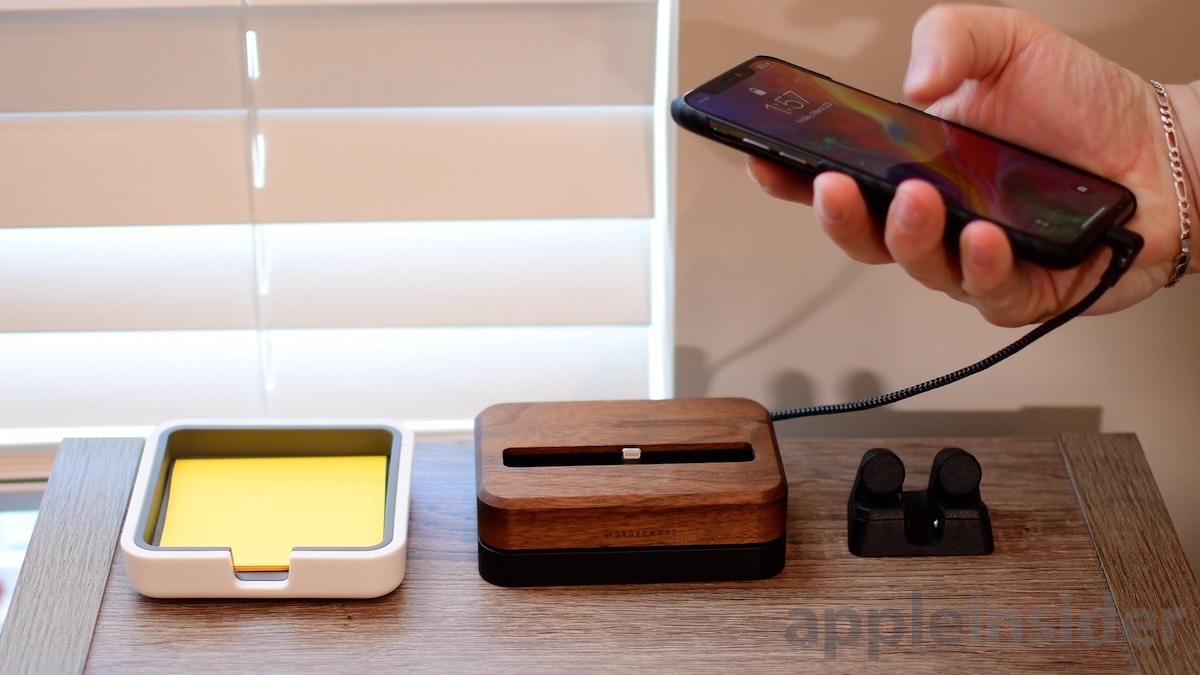







-m.jpg)






 Charles Martin
Charles Martin

 Malcolm Owen
Malcolm Owen
 William Gallagher
William Gallagher

 Christine McKee
Christine McKee
 Wesley Hilliard
Wesley Hilliard








13 Comments
Looks really nice but not compatible with OtterBox or similar cases so....
I don’t use a case, so I don’t have that problem. This looks really sweet. Guess it’s a plastic base? Metal would have been nice, but I know how expensive that would have been to manufacture.
Read the Amazon US reviews before buying.
Actually i bought one based in initial mention on here I’m quite happy with it. So far 2 weeks in
Just have to add that there is a learning curve on how to dock it back with the cable attached but after a while it works every time. Now it would be perfect if the cable would wind itself up inside a (bigger) base stand but that would add bulk to it.
My only (minor) quirks is that it doesn’t look clean by whipping the cable back to get it out of the way before docking.
But I’d easily give it 5/5